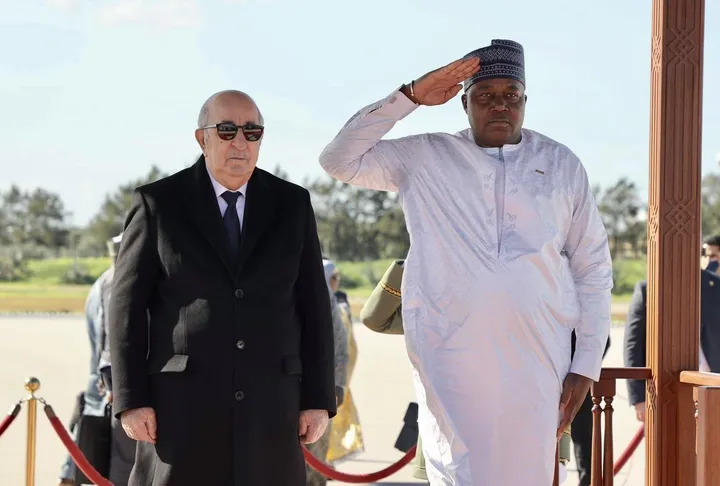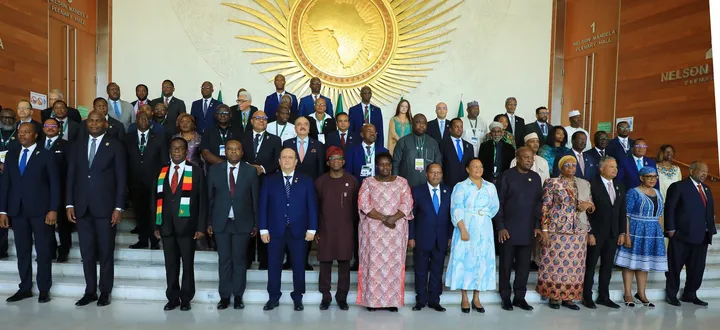By Brian Okoth
Kenya's President William Ruto has said the now-rejected finance bill was a game-changing policy document that was "poorly communicated" to the citizens.
Ruto, who spoke in a joint media interview in Kenya on Sunday, said his communications team failed him in relaying the message about the beneficial aspects of the bill.
The president added that the rejection of the bill now takes Kenya "almost two years behind."
According to Ruto, had the bill been accepted, Kenya would have – in the next three years – been in a position to sufficiently finance its budget without relying on loans to bridge funding deficit.
Going to 'deliberate'
The head of state however said he was going to "deliberate" on the issues raised by young people who opposed the Finance Bill 2024.
The bill sought to introduce eco levy on sanitary towels, mobile phones, motorcycles, among other items.
At the same time, the bill sought to introduce value-added tax (VAT) on construction materials and equipment for specialised hospitals as well as tourism facilities.
The recent two-week protests started peacefully but ended violently, with a section of parliament burnt.
'Working hard to pull Kenya out of debt'
Following the widespread demonstrations, the president declined to sign the finance bill into law.
He referred the bill back to parliament for all its provisions to be formally struck off.
"We have dropped the finance bill. What does that mean? It means that we have gone back almost two years. It means that this year, we are going to borrow one trillion Kenyan shillings ($7.7 billion) to be able to run our government," Ruto said.
"I have been working very hard to pull Kenya out of a debt trap. We need to contextualise this finance bill. It is easy for us, as a country, to say 'let us reject the finance bill.' That is fine. And I have graciously said we will drop the finance bill, but it will have huge consequences."
'I have a job to do'
He added that Kenya collected revenue totalling 2.3 trillion shillings ($17.8 billion) in the 2023/2024 financial year, but 1.2 trillion shillings ($9.3 billion) went toward debt-servicing, and the remaining toward paying government workers' salaries.
There have been calls for the president to step down after mass protests left at least 23 people dead and hundreds injured, according to the state-funded Kenya National Commission on Human Rights (KNCHR).
President Ruto however says the number of those killed in the protests are 19.
On calls for his resignation, he said he has "a job to do" and therefore won't quit, but respects the "freedom of speech, and freedom of thought" of all Kenyans.
'Ksh2 billion worth of property damaged'
Ruto said that during the two-week protests, property worth 2.4 billion shillings ($18.6 million) was damaged.
He added that even though the youth-led protests had started peacefully, "criminals took advantage of the situation", forcing police to "use rubber bullets."
Asked on his thought about the manner in which police killed some of the protesters, Ruto said: "Police have an explanation for what they do."
"There will be no extrajudicial killings in Kenya, I have kept my promise," he added.
'Abductions'
On a recent increase in the number of police-led abductions, especially on people perceived to be vocal about anti-government policies, Ruto said: "If there are any arrests (made) by police, (they) do not amount to an abduction."
"If the police summon you, and you refuse to come (and they take you into custody thereafter), is that an abduction?" the president posed.
Next week, some Kenyans said they would take part in demonstrations to push for the resignation of the head of state. Ruto's administration recently deployed the military to help contain protests.
The president says the army will move in to contain next week's protests "as a last resort."
Budget cuts
"Police will be there to make sure that criminal elements are dealt with," Ruto said.
In the new financial year, Kenya will be forced to work its budget around the already existing Finance Act of 2023 that drew a 3.7-trillion-shilling ($28.6 billion) budget for the 2023/2024 financial year.
Under the rejected bill, the East African nation had drawn a 3.9-trillion-shilling ($30.1 billion) budget for the new financial year.
President Ruto said his government would be forced into austerity measures, including reducing funding to his office, as well as cutting down on plans to boost the education sector with more teachers.
➤ Click here to follow our WhatsApp channel for more stories.




.JPG?width=720&format=webp&quality=80)



.JPG?width=128&format=webp&quality=80)














